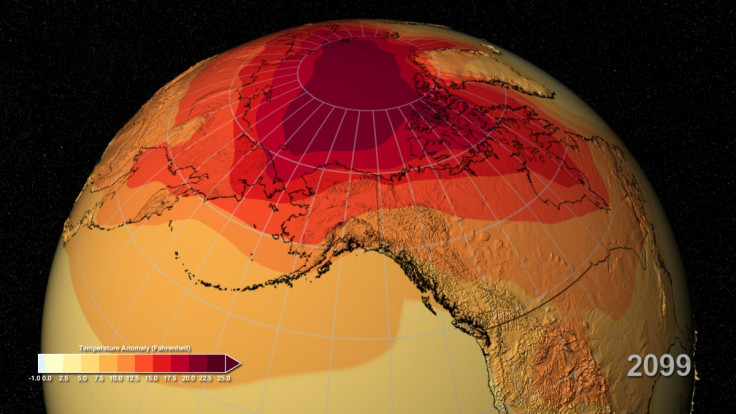Nasa: Slowdown of Global Warming 'in Line With Climate Change Estimates'

The slowdown of global temperature rises in recent years is in line with climate change estimates and the planet will continue to warm at a concerning rate despite this hiatus in warming, researchers have said.
A report by Nasa has made more detailed calculations of the sensitivity of Earth's climate to factors that cause it to change, such as greenhouse gas emissions.
Published in the journal Nature Climate Change, the researchers found Earth will probably experience 20% more warming than estimates previously based on surface temperature observations over the last 150 years.
Drew Shindell, from Nasa's Goddard Institute for Space Studies, notes that global temperatures have been increasing by 0.12C every decade since 1951, but this dropped to 0.05C since 1998, leading many climate sceptics to say that global warming is not happening.
Nasa's latest report has taken this slowdown of warming into account and have calculated Earth's "transient climate response", which determines how much global temperatures will change as CO2 in the atmosphere continues to increase.
"I wish it weren't so, but forewarned is forearmed."
Study author David Shindell
Findings showed a response range from 1.4C estimated by recent research, to Shindell's study of a 1.7C increase. The report showed a climate response below 1.3C is unlikely.
The researchers looked at the effect of airborne particles, called aerosols, increasing climate change. Previous estimates have assumed aerosol impacts are the same across the globe and have not accounted for the different role played by the Northern and Southern hemispheres.
Findings showed that previous studies have underestimated the global cooling effect of aerosols. This means the slowdown in global warming in recent years is in line with climate estimates.
"Working on the IPCC, there was a lot of discussion of climate sensitivity since it's so important for our future," Shindell said. "The conclusion was that the lower end of the expected warming range was smaller than we thought before. That was a big discussion.
"Yet, I kept thinking, we know the Northern Hemisphere has a disproportionate effect, and some pollutants are unevenly distributed. But we don't take that into account. I wanted to quantify how much the location mattered."
He said their findings suggest global leaders must aim to reduce greenhouse gasses at the higher end of reduction ranges to avoid the worst effects of climate change: "I wish it weren't so, but forewarned is forearmed," he said.
© Copyright IBTimes 2025. All rights reserved.






















